In Episode 142 of the PricePlow Podcast, Mike and Ben continue the conversation with Chad Kerksick, President of the International Society of Sports Nutrition (ISSN). We met Chad in Episode #141 -- he's an esteemed researcher in exercise science and nutrition. This episode delves deeper into the specifics of study design and the exploration of innovative ingredients in the supplement industry, namely NNB Nutrition's RAMPS Dileucine (DL185) and GlucoVantage Dihydroberberine.
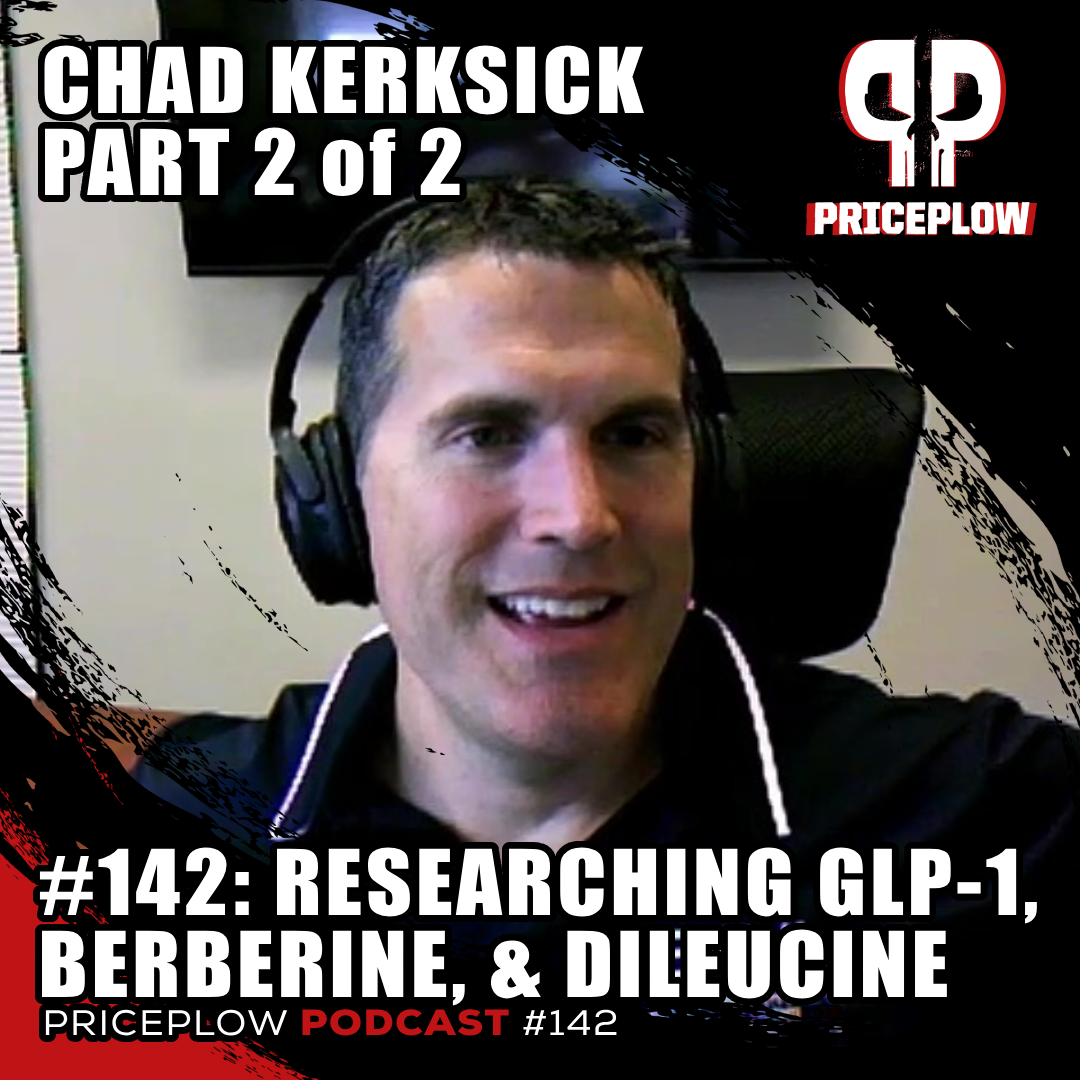
Chad Kerksick finishes his 2-part podcast series on PricePlow to discuss his research done on NNB Nutrition ingredients like RAMPS dileucine (DL185) and GlucoVantage dihydroberberine. We also talk study design, and targeting new research like GLP-1.
In this continuation, the focus shifts to the practical applications of Chad's research and his insights into the latest trends and advancements in sports nutrition.
Chad kicks off the discussion by recounting his initial experiences with study design. He emphasizes the need for careful consideration to avoid common pitfalls and ensure the validity of the findings.
RAMPS Dileucine and GlucoVantage Dihydroberberine
The conversation then transitions to specific ingredients, with a spotlight on NNB Nutrition's RAMPS Dileucine (DL185) and GlucoVantage Dihydroberberine. Chad shares his experiences with these compounds, discussing their potential benefits and the nuances of incorporating them into research studies. He provides valuable insights into the challenges and opportunities of working with novel ingredients, offering practical advice for both researchers and industry professionals.
GLP-1 Agonists
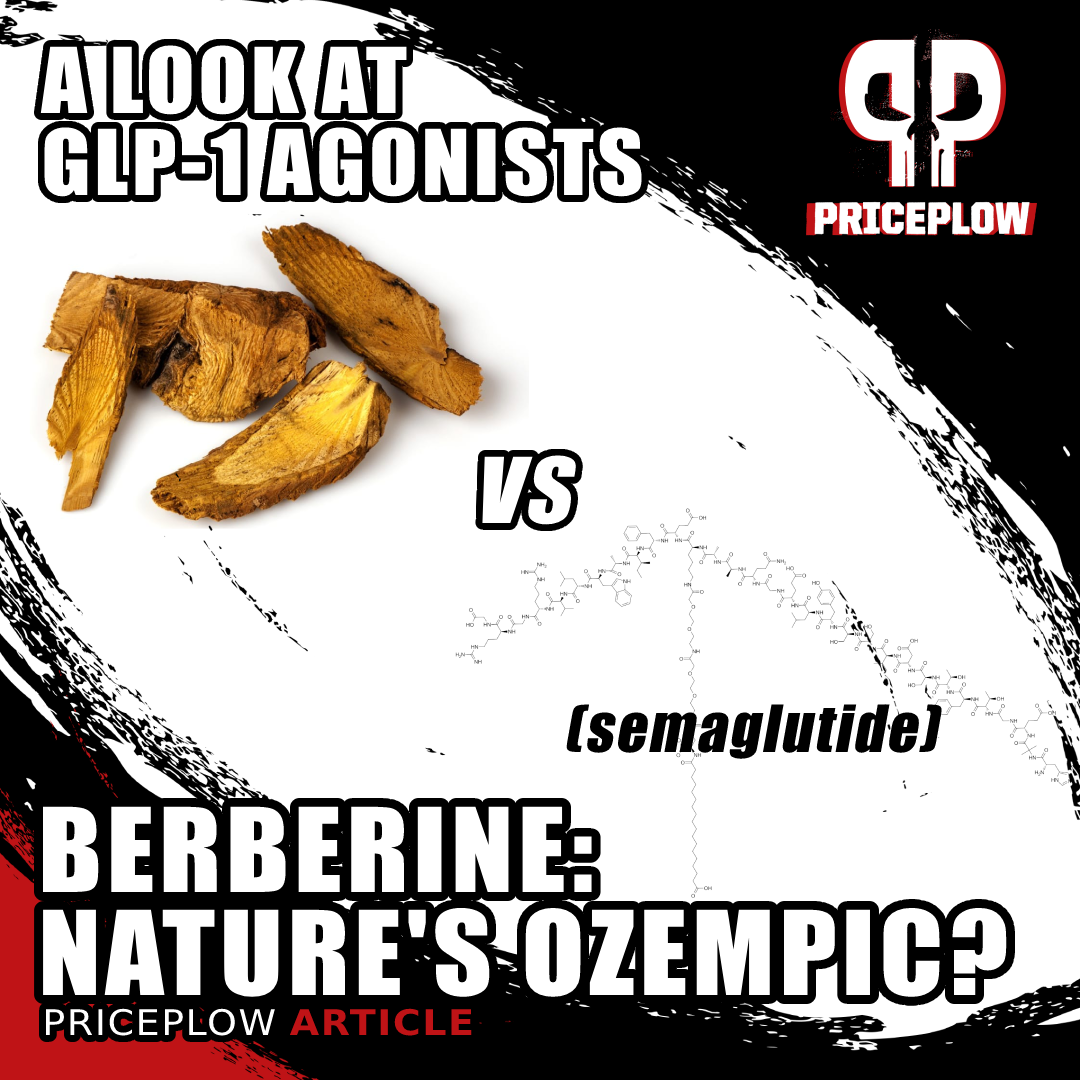
Is Berberine "Nature's Ozempic"? We take a look at their mechanisms as GLP-1 agonists, and answer, "Yes, somewhat."
One of the key highlights of this episode is the discussion on targeting new areas of research, particularly GLP-1 agonists. Chad explores the potential of these compounds in weight management and metabolic health, drawing parallels with existing pharmaceutical interventions and the quest for natural alternatives. He outlines the steps involved in designing effective studies to evaluate these ingredients, emphasizing the importance of understanding their mechanisms of action and physiological impacts.
Throughout the episode, Chad's expertise shines through as he navigates complex topics with ease, providing listeners with knowledge and practical takeaways. Whether you're a researcher, a supplement industry professional, or simply a health enthusiast, this episode is packed with information and insights.
Subscribe to the PricePlow Podcast on Your Favorite Service (RSS)
https://blog.priceplow.com/podcast/chad-kerksick-dileucine-dihydroberberine-glp-142
Video: Chad Kerksick Researches Dileucine, Dihydroberberine, and GLP-1
Podcast: Play in new window | Download (Duration: 1:00:21 — 57.9MB)
Show Notes with Chad Kerksick - Part 2 of 2
-
0:00 - Chad Kerksick Pt. 2
Chad Kerksick, President of ISSN (International Society of Sports Nutrition), Joins PricePlow for Episode #141 to talk about sports performance research and to recap ISSN 2024. This is part 1 of a 2 part series!
In Episode #142 of the Priceplow Podcast, Ben and Mike welcome back Chad Kerksick to discuss study design and specific ingredients. Mike prompts Chad to share insights from his early research mistakes and to discuss best practices in designing studies, especially related to performance. Chad recounts a fundamental error in his first study involving improper dosage control and emphasizes the importance of avoiding critical flaws in research design.
He underscores the necessity of randomizing participants, ensuring equal group distribution based on baseline characteristics, and using double-blind, placebo-controlled setups. Chad also highlights the importance of aligning participant demographics with the target audience of the study. He points out the common pitfall of misapplying study results from one demographic to another and stresses the importance of clear, disciplined communication in scientific research.
-
5:00 - Defining Terms: "Trained Individual"
Ben asks Chad to define what constitutes a "trained individual" in research studies, highlighting that the common perception might be skewed towards elite athletes. Chad emphasizes the importance of clearly defining terms like trained, elite, and competitive when designing studies, as these can vary greatly depending on the context. He references guidelines from academic papers and organizations like the American College of Sports Medicine but notes that criteria can differ between resistance training and endurance studies.
Chad describes how his lab uses baseline strength thresholds, training frequency, and other metrics to ensure participants meet the desired standards. He acknowledges the challenge of balancing participant qualifications to ensure relevance to the general population, using examples from past studies to illustrate how they control for both untrained and highly trained individuals. Chad also discusses the practical difficulties and high screen-fail rates that come with stringent participant criteria, which, while necessary for robust data, can complicate the research process.
-
12:00 - Understanding Ingredients
NNB Nutrition has announced open distribution of RAMPS Dileucine, after an exclusive period with MuscleTech in their Peptide 185 supplement.
Mike asks Chad about the depth of understanding required for specific ingredients like dileucine and how it impacts study design. Chad explains that while he delves into biochemistry out of personal interest, his primary focus is on the design and execution of rigorous clinical trials. He emphasizes the importance of understanding the pharmacokinetic patterns of ingredients to avoid fundamental design flaws, such as inappropriate dosing durations.
Chad agrees with Ben that knowing the correct prompts and understanding the ingredients to some extent is crucial for designing effective studies. They discuss the importance of ensuring studies are well-designed to yield meaningful data, whether positive or negative, acknowledging the financial implications for sponsors.
-
17:45 - Study design around dileucine
Mike asks Chad about the differences between data presented at conferences, like ISSN, and what eventually gets published. Chad explains that while abstracts are brief and may present limited data, full manuscripts include more comprehensive results and deeper analysis. He acknowledges that further examination of data can lead to minor changes, such as identifying outliers that can affect statistical outcomes.
Chad elaborates on a specific study design involving dileucine, mentioning that initial abstracts had fewer participants than the final published study. The study involved a 10-week resistance training program with trained males, randomized by baseline fat-free mass to ensure balanced groups.[1,2] Chad highlights the importance of randomizing by fat-free mass or baseline strength to avoid bias in results. The discussion also touches on the practicalities of dosing in research versus real-world application, emphasizing the need to balance scientific rigor with practical marketing considerations.
-
24:00 - Simplifying training regimens
Ben and Mike discuss with Chad the setup and execution of resistance training studies, noting recent trends of even placebo groups gaining fat-free mass. Chad outlines his approach to simplifying training regimens to prevent participant frustration and dropout, which includes using a four-day split body format with exercises targeting major muscle groups. He highlights the importance of using exercises like leg presses to minimize technique variability and ensure consistent measurements.
Chad explains that while complex movements like back squats can introduce technique failure, simpler exercises provide more reliable data. They also discuss the use of isometric knee extensions in research for their ability to remove technique variability, despite criticisms. Chad emphasizes the importance of standardizing tests and training students through practical experience to improve data collection.
-
30:58 - Formulating a supplement with dileucine
Raza Bashir of MuscleTech and Shawn Wells of Ingenious Ingredients join the PricePlow Podcast for Episode #123 to discuss the new dileucine ingredient in Peptide 185!
Mike challenges Chad to think about how he would formulate a new supplement product line with dileucine, despite it being outside his usual focus. After shaming Mike, Chad explains that while their study did show significant improvements in lower body strength and endurance, it didn't significantly impact body composition. He suggests that dileucine might be more beneficial when paired with lower protein doses or plant proteins to enhance muscle signaling.
Chad also considers its potential for older populations struggling with muscle health and protein intake, and its role in weight cutting scenarios where calories are limited. He emphasizes the importance of targeting fat loss rather than weight loss and suggests that dileucine could help maintain muscle mass during caloric deficits. The discussion touches on the possibility of incorporating dileucine into low-calorie shots or protein bars, aiming to optimize muscle health and adaptation without excessive calories.
-
36:15 - Training for the study
Ben inquires about the duration and setup of the dileucine study. Chad explains that participants trained four days a week and followed calorie and protein targets, with periodic dietary assessments to ensure compliance. Despite improvements in strength and endurance, the study didn't show significant changes in body composition. Chad elaborates on the methods used to measure body composition, including dry lean mass calculations via impedance analyzers.
The conversation shifts to GLP-1 agonists and dietary supplements. Chad outlines his approach to designing studies for these compounds, emphasizing the importance of longitudinal data, dietary education, and possibly resistance training to assess the quality of weight loss. He mentions his advisory work with NNB, focusing on their dihydroberberine supplement, and describes a pilot study designed to evaluate its effects on mood, appetite, weight loss, body composition, and various metabolic markers over six weeks without additional diet or exercise interventions.
-
43:15 - Berberine's potential
We've long said that GlucoVantage dihydroberberine has 5x the bioavailability if traditional berberine. In our '5X' article, we explore the very well-designed study that demonstrated this.
Mike and Chad discuss the potential of berberine as a GLP-1 agonist, particularly in curbing appetite, which is a primary reason people use semaglutide. Chad acknowledges that while berberine's anti-diabetic effects are well-documented, its impact on appetite is not as well studied. Mike finds a study supporting appetite reduction in animals,[3] but nothing in humans, and it's clear that if there's an effect, it wouldn't be as strong as semaglutide.
Chad explains how appetite can be measured in research, typically through visual analog scales that assess hunger, satiety, and cravings. Another method involves detailed dietary records to track changes in calorie intake over time, though this approach often suffers from poor accuracy.
Chad mentions the challenges of accurately capturing dietary intake and suggests that social environment studies, where participants' food consumption is recorded in a controlled yet naturalistic setting, can provide valuable insights despite being complex and costly to conduct.
-
48:30 - Measuring appetite
Chad explains that while berberine has well-documented anti-diabetic effects, its impact on appetite is less studied, emphasizing the need for pilot studies to explore this potential. He describes the use of visual analog scales and detailed dietary records to measure appetite and caloric intake in research. They also touch on the importance of designing studies to yield marketable claims for supplements, considering the commercial interests involved.
The conversation highlights the cost and accessibility of pharmaceutical drugs versus natural supplements and the advantages of formulating supplements like dihydroberberine, which requires a smaller dose and can be used more flexibly. Chad underscores the value of preliminary studies to determine the efficacy and viability of supplement formulations in comparison to their pharmaceutical counterparts.
-
54:15 - Dihydroberberine
A study published in early 2022 showed that NNB Nutrition's GlucoVantage dihydroberberine outperformed higher doses of normal berberine in elevating plasma berberine and reducing blood sugar and insulin levels!
Mike and Ben discuss with Chad about the use and study of dihydroberberine, an ingredient found in GlucoVantage by NNB Nutrition. They highlight a small pilot study led by Jessica Moon, which showed promising results for the bioavailability of dihydroberberine compared to berberine.[4] The conversation shifts to the challenges of dietary studies, particularly in accurately measuring participants' dietary intake and appetite, and the potential of natural alternatives like berberine in comparison to pharmaceutical drugs like GLP-1 agonists.
Chad explains the difficulties in study design, the importance of randomized double-blind placebo-controlled studies, and the potential for dihydroberberine to be a more effective and bioavailable supplement. The episode concludes with Chad sharing his contact details for professional inquiries and discussing the challenges of creating engaging social media content despite his extensive research experience.
Where to Find Chad Kerksick Online
- Instagram: @ChadKerksick
- LinkedIn: linkedin.com/in/chadkerksick/
- ISSN Website: SportsNutritionSociety.org
- ISSN Journal: https://www.tandfonline.com/journals/rssn20
- ISSN Instagram: @the_issn
Thanks to Chad for the education and thanks to NNB Nutrition for supporting this half of the podcast! You can head back to Episode #141, Part 1 with Chad Kerksick.
Finally, subscribe to the The PricePlow Podcast on your favorite platform and leave us a solid review on iTunes and Spotify!
Subscribe to the PricePlow Podcast on Your Favorite Service (RSS)
InnovaPharm Berberine X5 – Deals and Price Drop Alerts
Get Price Alerts
No spam, no scams.
Disclosure: PricePlow relies on pricing from stores with which we have a business relationship. We work hard to keep pricing current, but you may find a better offer.
Posts are sponsored in part by the retailers and/or brands listed on this page.



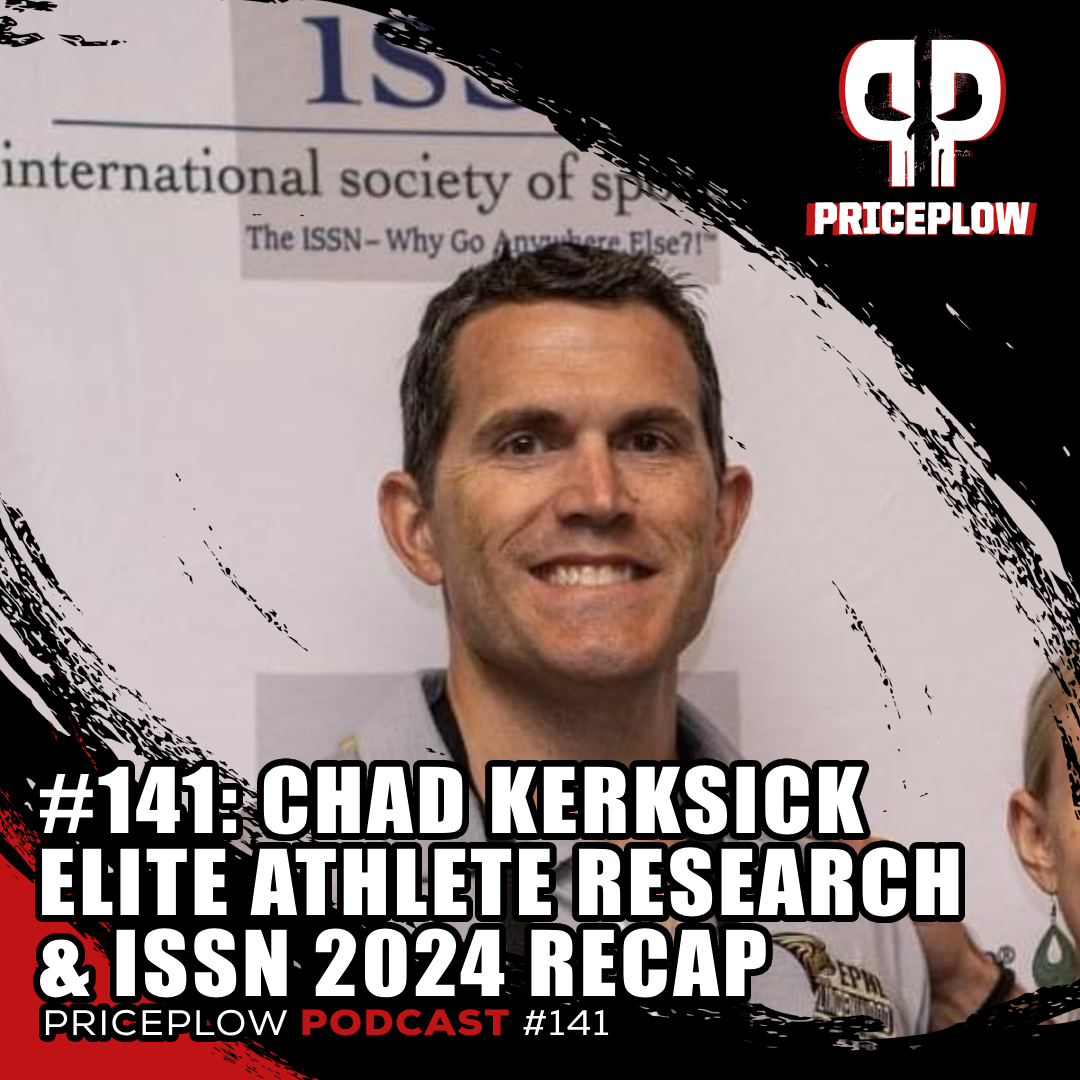

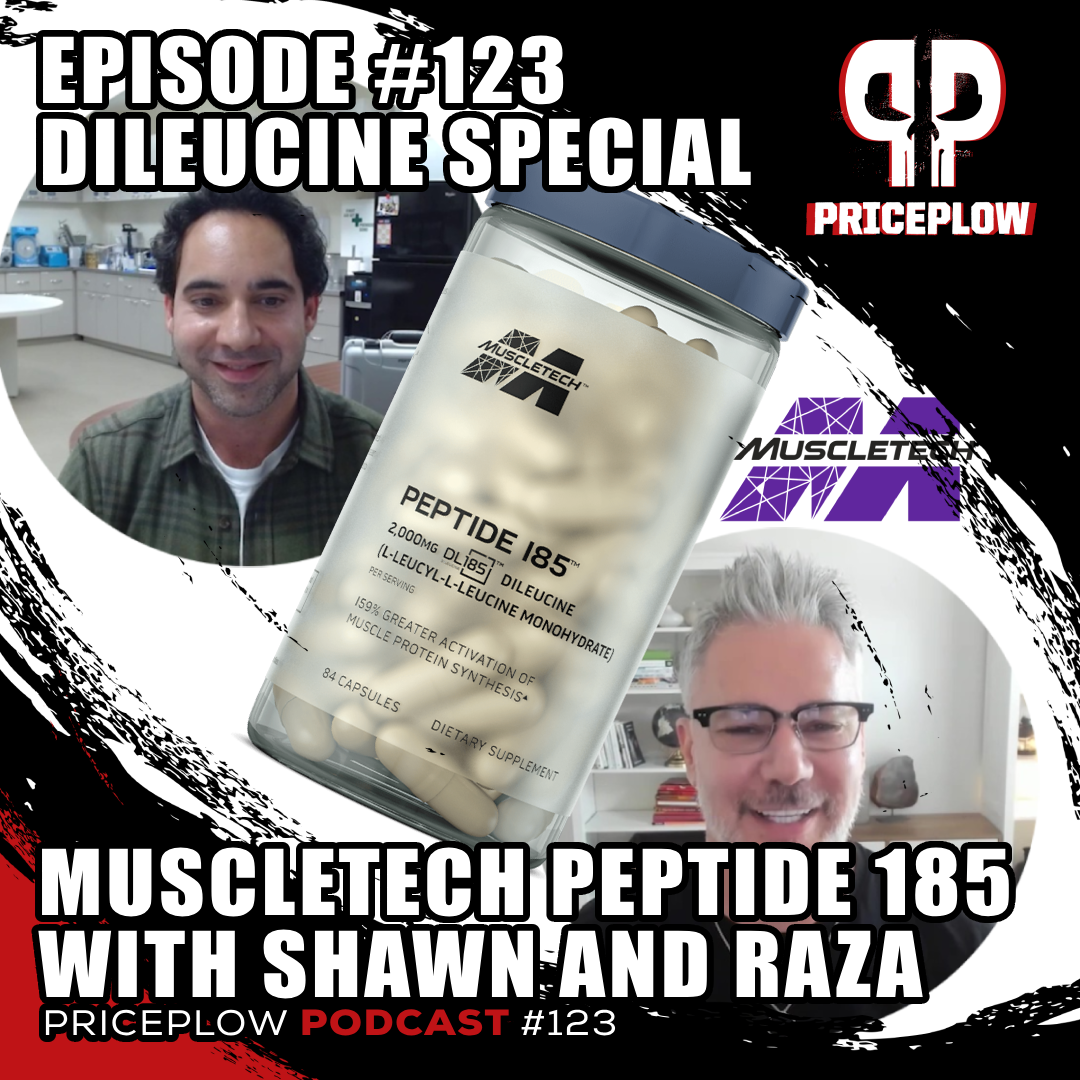

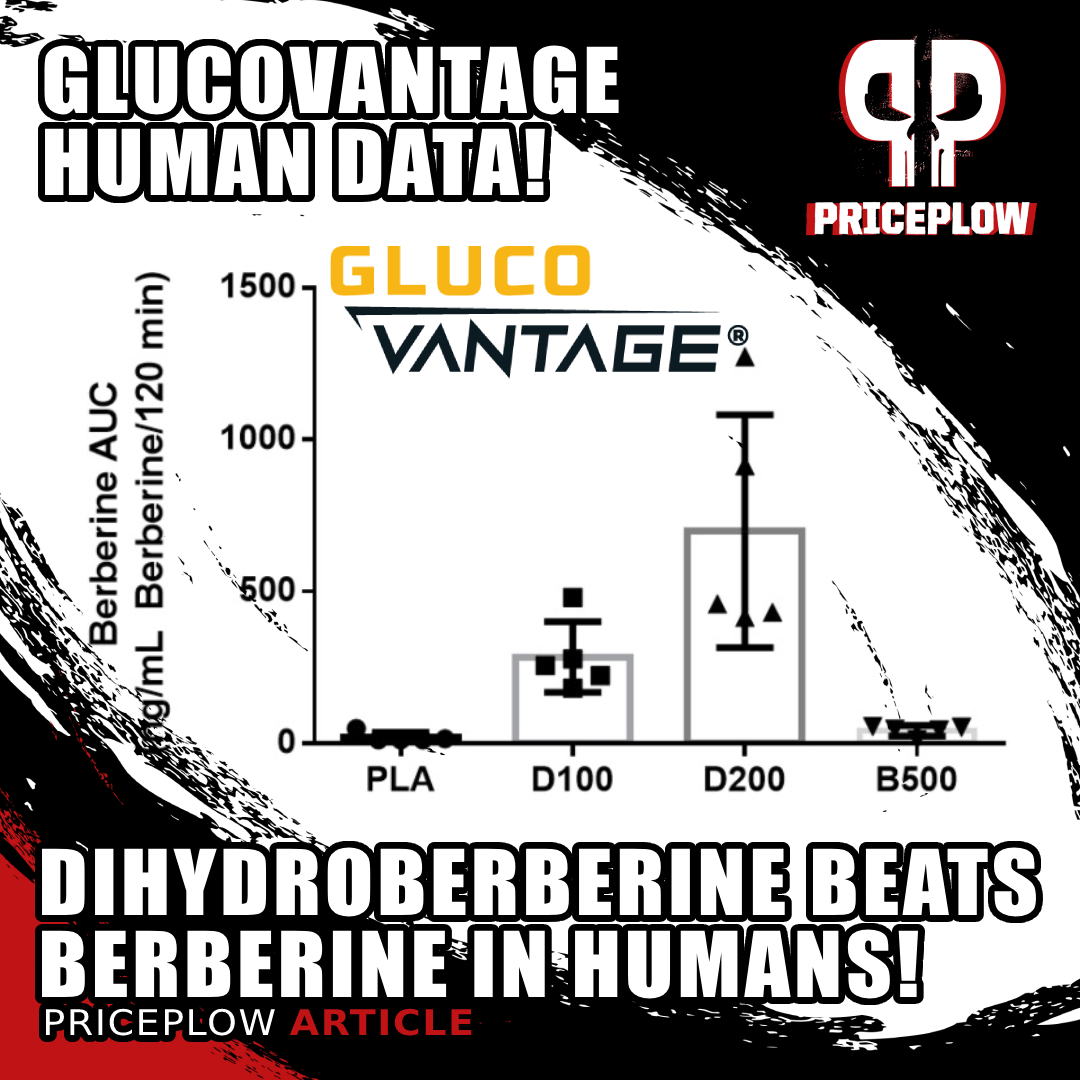


Comments and Discussion (Powered by the PricePlow Forum)